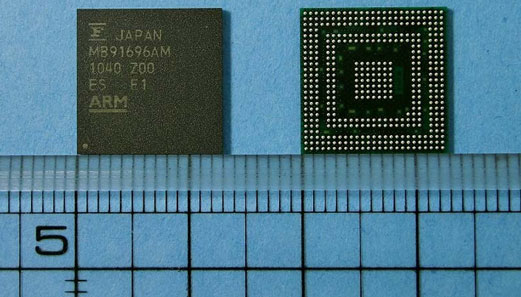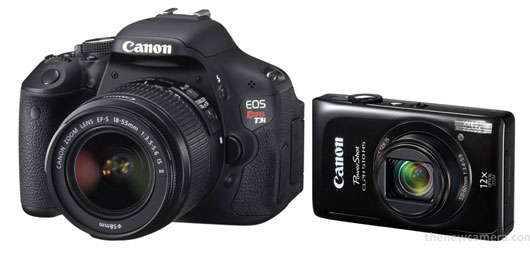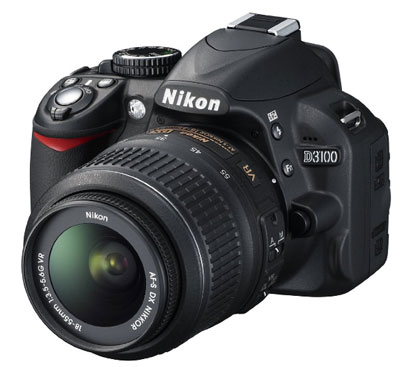This Guest Post is written by Mila Johnson of Fatwallet.com
The digital camera market is becoming muddled with too many choices. Consumers who normally would buy an affordable point-and-shoot now find themselves tempted by DSLR cameras. It’s hard not to be, with their professional look and falling prices. As DSLR camera become more affordable and commonplace in the big-box electronics stores, many camera shoppers find themselves wondering, “Is a DSLR right for me?”
The Difference
DSLR – Digital Single Lens Reflex – cameras are meant to emulate the SLR (take off the “D”) camera of old. A hinged mirror lets the photographer see exactly what the lens sees, and then it flips up when the photo is taken. The image sensor is behind the mirror, where the film used to be in SLR cameras. The two bigger differences are that a DSLR camera has a much more complex, high-quality image sensor and interchangeable lenses.

Megapixels vs Image Sensor
Retailers and advertisers love megapixels. It’s easy to stick a number on a camera ad and call it a day. This gives consumers an easy comparison point and they are out the door with the ten megapixel model. It’s more complex than that, though. The quality and size of the image sensor is much more important. Without turning this into a dry scientific article, let’s just stress that DSLR cameras are bigger and thus can house bigger and better sensors. DSLR cameras can have image sensors that are 20 times the size of those in a point-and-shoot, sometimes even bigger than that. Since point-and-shoot cameras are built for convenience, they have smaller image sensors that can’t produce shot quality to match a DSLR, even with a higher megapixel rating.
The Trade-offs
So is a DLSR right for you? It depends. A DSLR, by nature of its superior image sensor, will produce greater shot quality even if its megapixel rating is lower than that of a point-and-shoot. A DLSR is bigger, though, so it’s a matter of evaluating shot quality versus convenience. There is also the argument of simple versus complex. A DSLR requires a lot of practice, study and training to even try to use while a point-and-shoot is, well, point-and-shoot.
The Final Comparison:

Buy a DSLR if you:
- Are a pro or are really motivated to learn
- Have a lot of time to dedicate, since this will be a new hobby
- Don’t mind carrying a lot of gear
- Are not tied to a strict budget, since the price of accessories adds up fast
- Consider yourself a “technical person” and learn new technologies quickly
Buy a point-and-shoot if you:
- Just want a reliable digital camera for weekends, vacations, special occasions and the like
- Are not very technical
- Want a camera and not learn a new trade
- Are on a budget
When shopping for a camera look for deals on cameras online to save!







